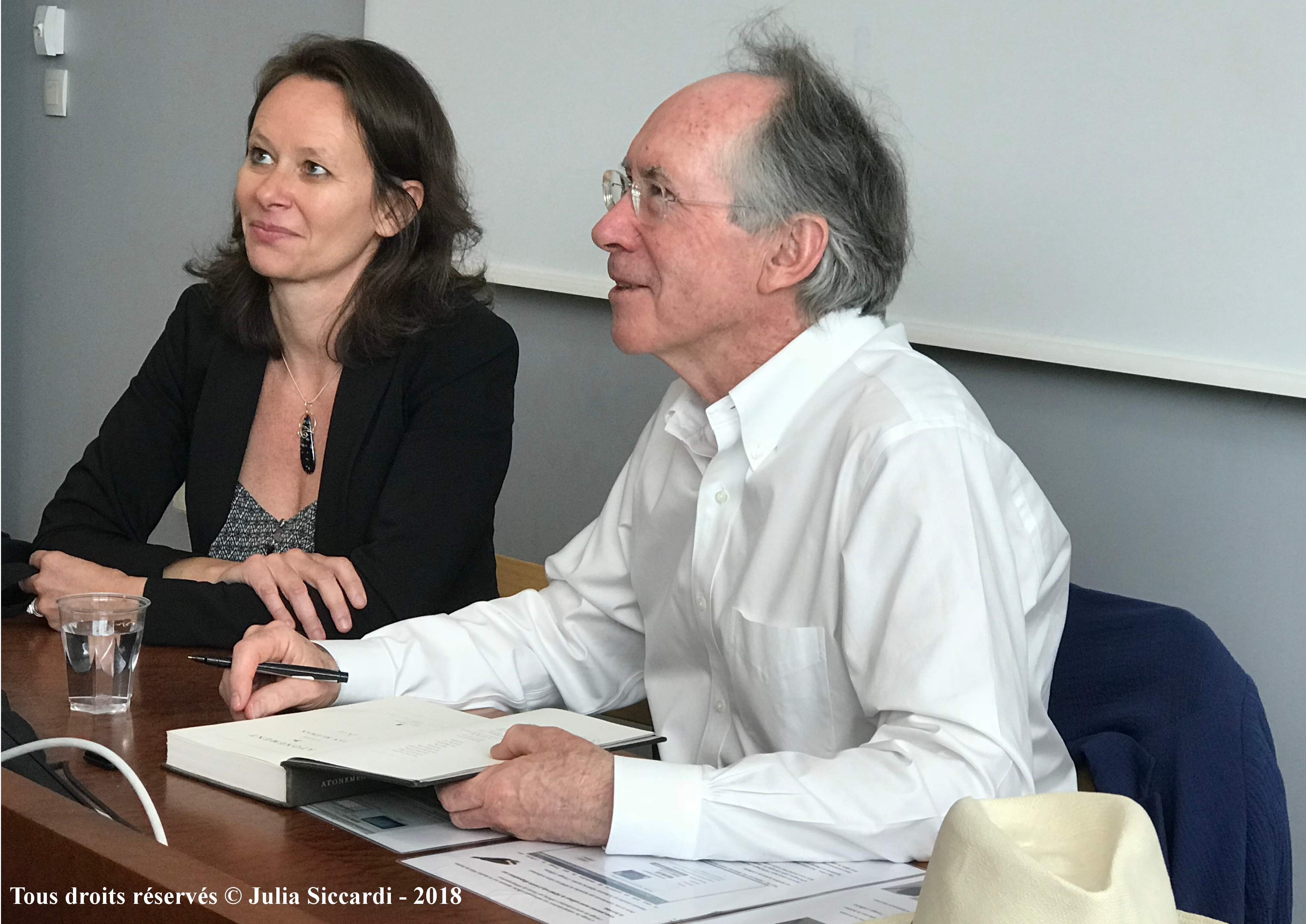Rencontre avec Ian McEwan autour de son roman «Atonement»
L'entretien se déroule en deux temps : Ian McEwan échange tout d'abord avec Vanessa Guignery sur les premières versions de Atonement ainsi que sur ses carnets d'écriture, archivés au Harry Ransom Center à Austin (Texas). L'auteur répond ensuite aux questions des étudiant.e.s.
Les extraits des archives d'Ian McEwan sont reproduits ici avec l'aimable autorisation de l'auteur et du Harry Ransom Center de l'Université du Texas à Austin.
Une transcription de l’entretien, éditée par Vanessa Guignery, a été publiée dans la revue Études Anglaises :
« A Conversation with Ian McEwan. » Études Anglaises 71.3 (July/Sept. 2018): 332-340.
| video_chapitree | |
|
6:18 |
|
9:48 |
|
17:40 |
|
22:09 |
|
24:49 |
|
28:28 |
|
32:41 |
|
38:07 |
|
42:02 |
|
42:41 |
|
47:19 |
|
53:17 |
|
54:48 |
|
1:00:06 |
|
1:02:33 |
|
1:04:44 |
|
1:07:25 |
|
1:10:51 |
|
1:14:32 |
Pour citer cette ressource :
Ian McEwan, Vanessa Guignery, Rencontre avec Ian McEwan autour de son roman Atonement, La Clé des Langues [en ligne], Lyon, ENS de LYON/DGESCO (ISSN 2107-7029), juin 2018. Consulté le 16/02/2026. URL: https://cle.ens-lyon.fr/anglais/litterature/litterature-britannique/rencontre-avec-ian-mcewan-autour-de-son-roman-atonement



 Activer le mode zen
Activer le mode zen
